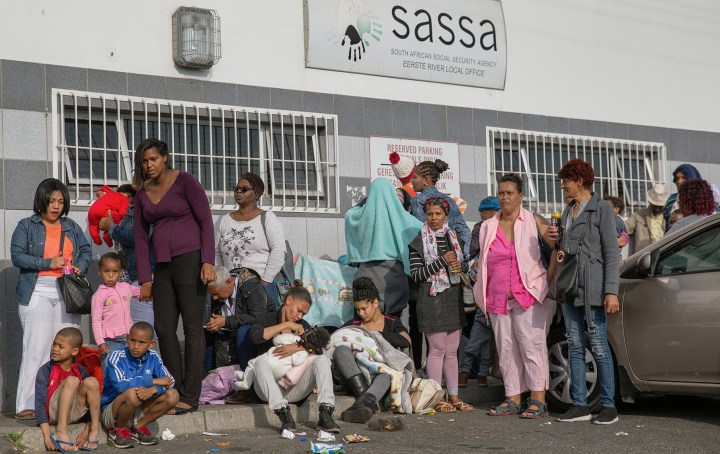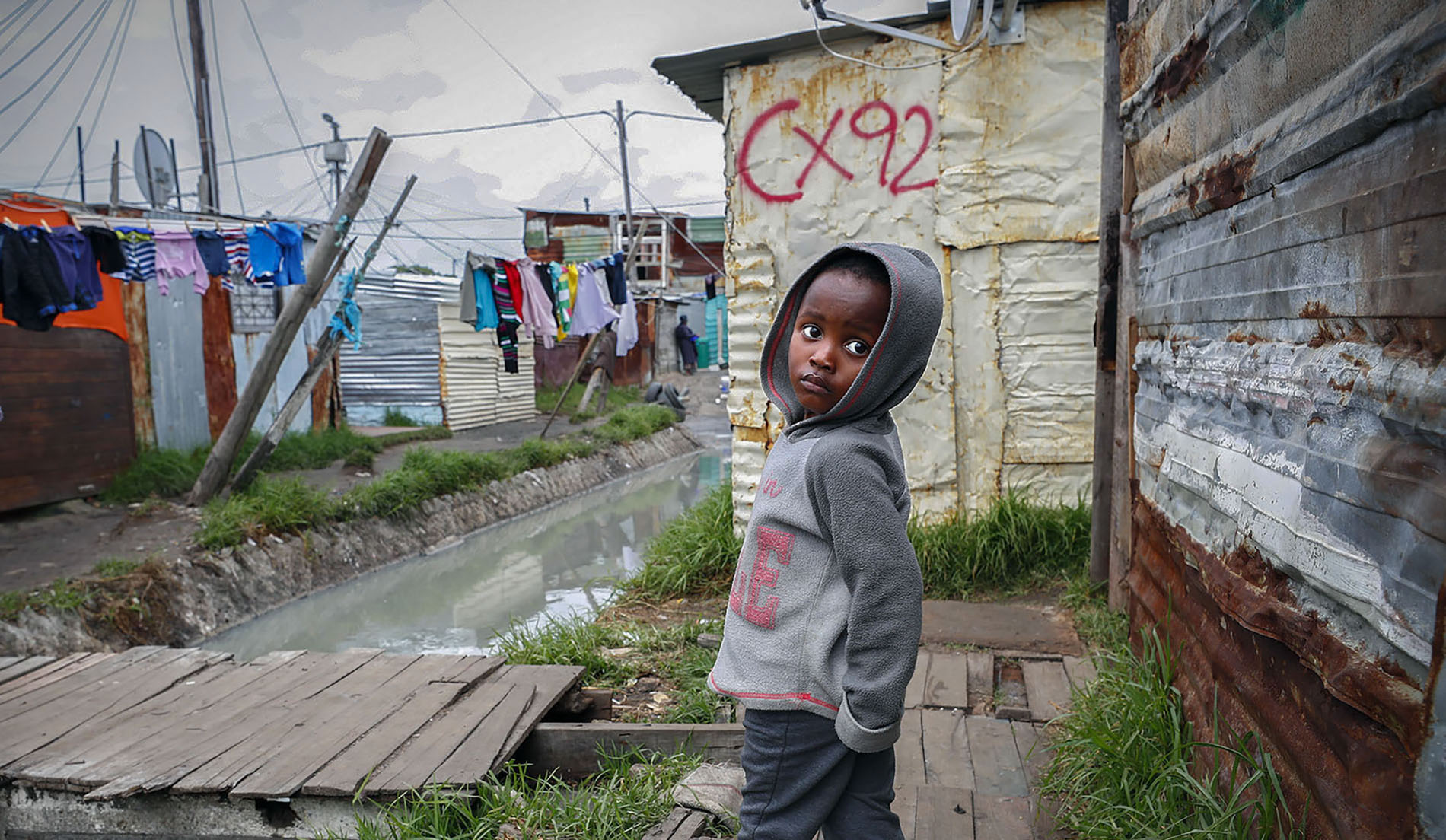SOCIOECONOMIC RIGHTS
‘Transformative politics’ needed in SA’s fiscal arena to address drastic inequality

A scarcity of available resources is no excuse when it comes to addressing the relationship between fiscal policy and human rights. The government should be challenged in court when it comes to austerity measures that disproportionately affect the most vulnerable in society.
It is not uncommon for the government to “toll the bell of scarce resources” when it comes to the relationship between fiscal policy and human rights, and more specifically, the institution of a basic income grant. This is despite the fact that South Africa is one of the most unequal countries in the world, both in terms of income and asset distribution.
“Can we really talk about an absolute shortage of resources in South Africa?” questioned Sandra Liebenberg, HF Oppenheimer Chair in Human Rights Law at Stellenbosch University and extraordinary professor at the Free State Centre for Human Rights. “Available resources are not a static concept; they are compiled by political decisions that are made on how to distribute resources.”
Liebenberg was speaking on Thursday at a webinar hosted by the Free State Centre for Human Rights at the University of the Free State. The discussion, “Impoverishment, inequality and human rights: A conversation with Sandra Liebenberg”, explored the severe fiscal austerity measures introduced by the government in response to the Covid-19 pandemic, as well as the long-term failure of the state to introduce any broad social assistance response to South Africa’s crisis of impoverishment.
Joining Liebenberg was Professor Danie Brand, director of the Free State Centre for Human Rights.
Fierce contestation expected for ANC deputy president position
Redistribution
Resources can be generated through taxes and the stopping of corruption and maladministration, said Liebenberg, adding that the redistributive potential of South Africa’s policies was not being exploited to the fullest. While some might say that increased taxation disincentivises investment in the economy, she argues that the alternative is worse.
“Surely instability, surely crumbling infrastructure that gets washed away by the first floods will discourage investment,” she said. “An unskilled labour force because you haven’t invested properly in education, that’s going to also discourage investment.”
Addressing impoverishment is not only a matter of government policy, continued Liebenberg, though the state plays a vital role in providing services such as water, education and grants. There is also a need to examine the manner in which South African laws – such as those around property and inheritance – operate to privilege some groups and disadvantage others.
She made the example of laws around inheritance, under which children can inherit from their parents, allowing those from affluent families to get ahead while those from low-income backgrounds fall further and further behind.
The state has the potential to change those laws that create privilege and impoverishment through legislation and policy, said Liebenberg. In a situation where the state fails to regulate private actors and counter their monopolies over wealth and power, they can be held responsible for poverty.
The Constitution enshrines the principles of equality, socioeconomic rights and land reform, yet fiscal policy and the political economy are in tension with this, said Liebenberg. The vision of the text should be asserted in the political arena through transformative politics.

South Africa is one of the most unequal countries in the world, both in terms of income and asset distribution. Resources to address this can be generated through taxes, as well as the stopping of corruption and maladministration. (Photo: EPA / NIC BOTHMA)
“If one describes … impoverishment in South Africa, then it’s important to take into account that not only do people not have access to actual basic resources, such as food and housing and education and healthcare, but they also are faced with a situation where every single safety net in society is failing,” said Brand.
The unemployment rate in South Africa reached 35.3% at the end of 2021. Youth unemployment, meanwhile, stands at 65.5%.
Austerity
The crisis of the Covid-19 pandemic saw the government introduce severe fiscal austerity measures and budget cutbacks, specifically with regard to social spending, according to Brand.
Despite a R500-million relief package announced by the Presidency, the October 2020 medium-term expenditure framework showed that South Africa would be following a path of fiscal consolidation, with deep cuts in social provisioning, said Liebenberg.
These measures had a variety of knock-on effects. The 2020 budget review, for example, indicated that cuts in teachers’ salaries, combined with the natural retirements of teachers, would reduce the overall number of people in this profession. This, in turn, would lead to larger class sizes and negatively affected learning outcomes, particularly in no-fee schools, according to Liebenberg.
“So, here we in effect see an open admission that austerity policies are going to affect the most vulnerable groups that have borne the historic brunt of apartheid education,” she said.
Austerity further affected the Covid-19 Social Relief of Distress grant, and social security in general, as the amount for the grant did not keep pace with inflation. As such, the money people accessed through the grant bought fewer and fewer basic necessities each day.
When it comes to legal challenges to austerity policies, there are doctrines in equality rights that can be used, according to Liebenberg.
“[With] austerity policy, the international research is clear that it disproportionately affects women, black people, people living with disabilities… all the groups that are systemically disadvantaged in our society. So, I think equality presents a number of venues also for challenging it,” she said.
While there are cases in which the courts have ruled against austerity measures and government cutbacks, there are also those in which they have considered themselves “institutionally restrained” from telling the government how to structure budgets, said Liebenberg.
“I sense some rolling back on transformative constitutionalism from our courts, and I think it’s then also important for progressive constitutional law scholars and advocates to start pushing back a little bit and to assert that the court does have a role to play,” she said.
Liebenberg emphasised that the Constitution does not restrict the management of economic issues to the legislature, nor does it preclude courts from making economic decisions. Rather, there are legal cases reinforcing a Constitution that envisages a flexible notion of separation of powers, under which the executive, legislature and judiciary need to collaborate to produce the most effective rights.
“Courts should be holding the legislature and executive to account,” said Liebenberg. “So, at the very least, they should put them to terms to come up with a credible plan of action, in consultation and with the participation of society, on how they are going to close the gap.” DM/MC
[hearken id=”daily-maverick/9472″]




















 Become an Insider
Become an Insider
Comments - Please login in order to comment.